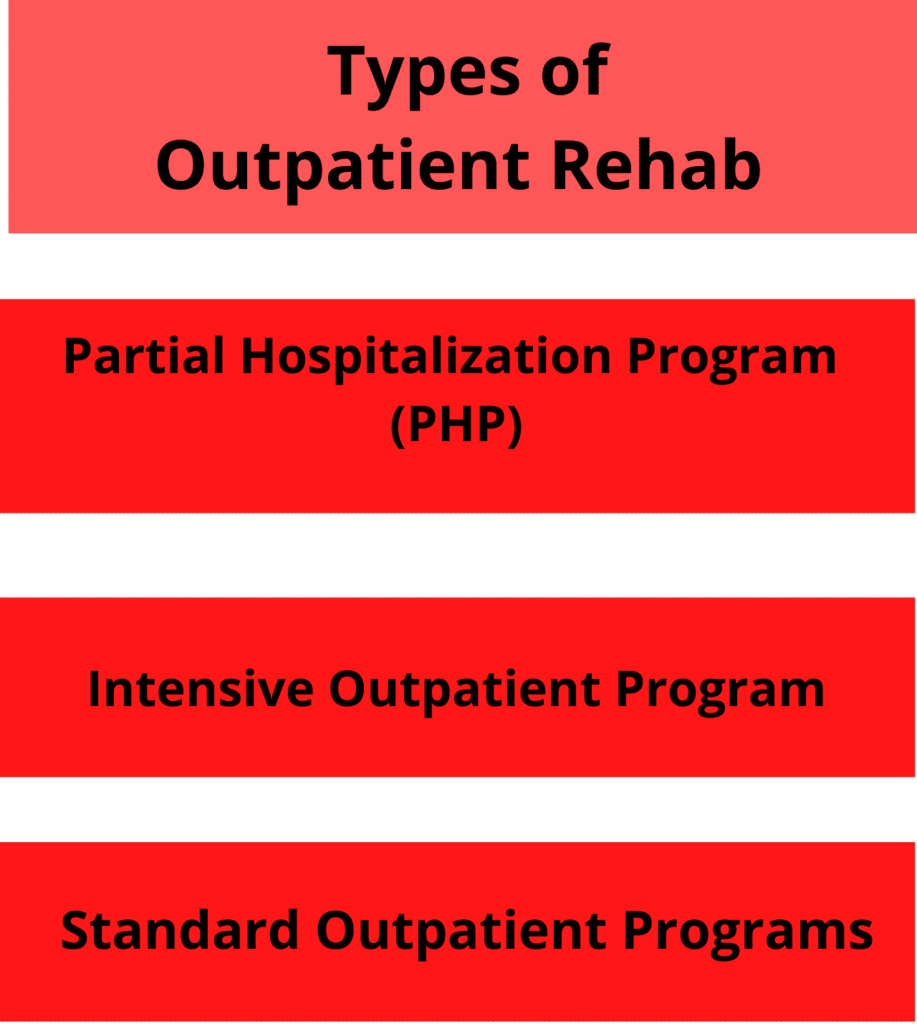
Table Of Contents
- What exactly is outpatient rehab?
- Different Kinds of Outpatient Rehab
- Treatments Available Through Outpatient Rehabs
- How is Outpatient Treatment Different Than Inpatient Treatment
- Behavioral Therapy Options in Outpatient Treatment Programs
- Benefits of Outpatient Addiction or Mental Health Rehab Treatment
- When is Outpatient Treatment Not Recommended
- When is Outpatient Treatment Recommended or Preferred
- Get Into an Outpatient Rehab Program Today
Outpatient rehab is one of the many types of rehab available to help people overcome addictions and mental health disorders. If you are struggling with either one or both of these things, you may be wondering how effective outpatient rehab really is. Here at Riverwalk Recovery Center, we would like to help you figure that out, but first, it’s a good idea to learn a bit more about this type of rehab.
What Exactly is Outpatient Rehab?
Outpatient rehab is a type of alcohol or mental health rehabilitation that allows the patient to stay living in their home or another safe living environment, such as a sober living community. They can also attend school or go to work while receiving rehab treatment services.
Most of the time the mental health clinics or addiction treatment centers that offer outpatient services hold their sessions during daytime hours. However, in some circumstances, you might be able to find evening and/or weekend appointments.
No matter which one you attend, the treatment you receive will be individualized to fit your recovery needs.
Different Kinds of Outpatient Rehab

There are various kinds of outpatient rehab that you should know about including:
- Partial hospitalization programs (PHP) – day treatment with an interdisciplinary team and recovery support staff that treats unstable or complex psychiatric or medical conditions (minimum of 20 hours of treatment weekly)
- Intensive outpatient program (IOP) – interdisciplinary team that provides between 9 and 20 hours of treatment per week, but with less clinical and medical support than the PHP
- Standard outpatient program – helps patients focus on their recovery while still attending to other responsibilities (usually around 9 or fewer hours of treatment every week)
These are some of the most common outpatient addiction and mental health treatment programs. If you want to know more about these options, don’t hesitate to contact our Riverwalk Recovery Center today.
Treatments Available Through Outpatient Rehabs
If you are going to attend an outpatient addiction or mental health rehab, it would be a good idea to learn about the treatments that would be available to you such as:
- Medication-assisted treatment
- Pharmacotherapies
- Yoga and meditation
- Psychosocial interventions
- Psychoeducational resources
- Support services
- Case management and continuing care services
- Recovery-related services such as support groups, personal accountability, life skills, and more
Are you ready to dive into the recovery process? If so, reach out to our Riverwalk Recovery Center team today.
How is Outpatient Treatment Different Than Inpatient Treatment
There are some people who aren’t sure whether they should attend outpatient or inpatient treatment. To help you figure this out, some of the differences are:
- Where you will live (outpatient at home or in a sober living community and inpatient you will stay in the facility)
- Level of clinical and medical management/monitoring – inpatient you receive 24/7 care while outpatient you receive treatment around 9 hours or fewer per week
Do you have more questions about the difference between these two types of treatment? If so, feel free to reach out to our team. We would be happy to answer any of your questions.
Behavioral Therapy Options in Outpatient Treatment Programs
In addition to the medical aspects of outpatient treatment, there are behavioral therapy options available, as well. Some of these options include:
- Cognitive-behavioral therapy
- Contingency management
- Community reinforcement approaches
- Motivational therapy
- Use of the matrix model
- 12-step facilitation therapy
- Family therapy
Just as with the other services, if you have any questions don’t hesitate to let a member of our Riverwalk Recovery team know.
Benefits of Outpatient Addiction or Mental Health Rehab Treatment
Now that you are aware of what outpatient rehab is and what services are offered, we can get down to how effective it is. Most people who have a mild to moderate addiction or mental health disorder find this type of treatment to be quite effective. There are numerous benefits of it, as well, including:
- Flexibility
- More scheduling opportunities
- Usually cost less than other treatment programs
- Use recovery skills in real-life situations while you are learning them
- Attend school
- Go to work
- Take care of your family
Does it seem like outpatient rehab is what you need? If so, reach out to us today to get enrolled in a treatment program as soon as possible.
When is Outpatient Treatment Not Recommended
There are going to be times when outpatient treatment is not recommended. Some of the situations where a different type of treatment, such as inpatient options, may be recommended instead include:
- Client has a moderate to severe mental health disorder or addiction
- Previous outpatient treatments haven’t worked
- Client needs monitoring during the detox process
- Home environment is toxic
- Client has medical complications or many medical health conditions to manage in addition to their mental health disorder and/or addiction
Do you fall into any of these categories? If so, our team would be happy to help you find out more about whether you qualify or should attend an inpatient treatment program or another treatment option.
When is Outpatient Treatment Recommended or Preferred
There are many times when outpatient treatment programs are recommended or preferred. Some of these situations would include:
- When the client has children at home to take care
- Client only has a mild to moderate addiction or mental health disorder
- The client has very good family or friend support
- Not many disruptions in normal day-to-day living
- Have strong willpower
- Clients who want or need to continue working or going to school
- Clients who want or need flexibility
- People who want to have their privacy while attending treatment
- Those who have another family member or friend they need to care for (such as a senior citizen grandparent)
- Those who want a wide variety of treatment options and can supplement with support groups
- Clients who are on a very limited budget
Do you feel, based on these factors, that you would be a good fit for our outpatient treatment programs? If so, don’t hesitate to reach out to our team. We want to help you get started on your recovery.
Get Into an Outpatient Rehab Program Today
Are you struggling with a mental health disorder or addiction? Is it mild to moderate? Do you meet the factors mentioned above to see if you would be better in outpatient rehab rather than an inpatient treatment program? If you can say yes to these questions, we would be happy to help you get into our outpatient rehab program. If you aren’t sure, that is okay, too. You can simply contact our team to speak with us about your situation. We can help you figure out which treatment is best.
Contact us today to either get into an outpatient rehab program or find out which treatment would be best for you.

It sure was helpful when you said that patients can still go to work while undergoing rehab treatments if they consider outpatient rehab services. This reminds me of my cousin who has been dealing with drug addiction problems since his wife passed away three months ago. He needs to financially support her only child, so it will be helpful for him to still be able to work while undergoing treatments.